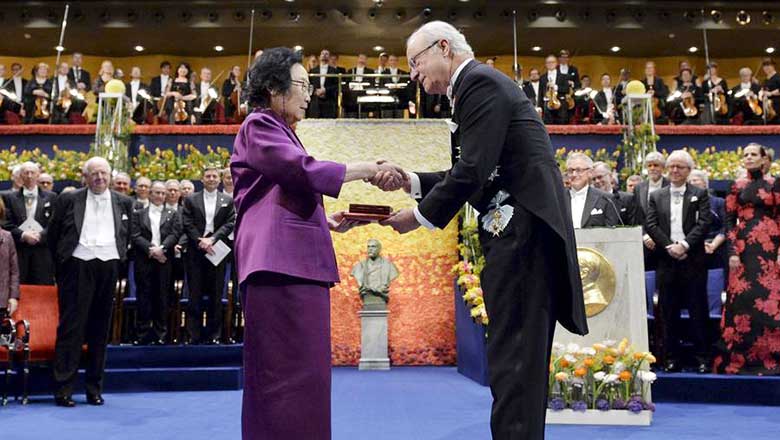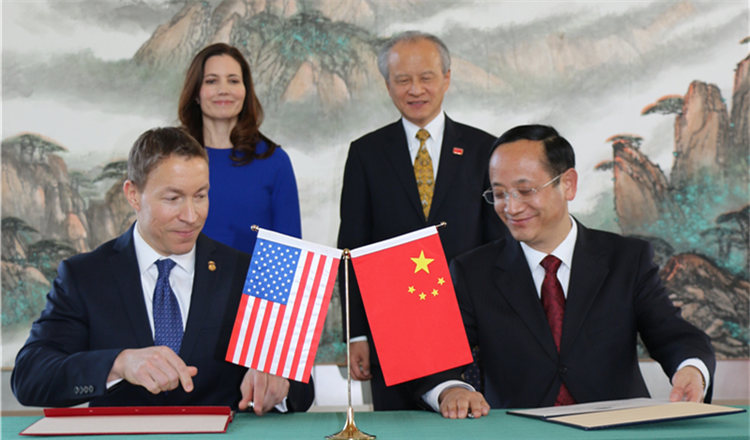From the office to the ring
Updated: 2015-12-12 04:01
By ALYWIN CHEW in Shanghai(China Daily USA)
|
||||||||
 |
It is seemingly this struggle to manage a career, social life and training that has been so strangely satisfying to a growing number of white collar boxers, including Alan Wong, who fought later that night.
“It’s all about setting up a clear goal and then breaking it down into smaller objectives. On the way to achieving all these objectives, you will encounter obstacles and attempt to overcome them. By doing so, you also understand more about yourself,” said the 34-year-old liquor trader.
“Boxing is not the art of punching hard. It’s the art of balance. That’s the beauty of it. ”
A steady rise in China
According to Shane Benis, the founder of China Sports Promotions — organizer of Shanghai Fight Night — more than 4,000 people have signed up with his company’s affiliated gyms, such as Golden Gloves Boxing Gym, since the conclusion of his inaugural boxing event in 2008. Furthermore, companies in other parts of China have also started to roll out their own white collar boxing competitions.
One such outfit is Suzhou-based Black Tie Boxing International, which was only founded earlier this year. Set up by Croatian boxer Marko Martinovic, the company recently held its first white collar boxing event, titled Suzhou Showdown, in the city’s Crowne Plaza Hotel on Nov 27 in Jiangsu province.
Dalia Fernandez, the business development manager at Black Tie Boxing International, echoed the fact that the sport is indeed becoming more popular in China as well as other parts of Asia, and that the company may expand to other second-tier Chinese cities in the near future
“We have seen a rise in popularity among Chinese nationals…there is also a huge rise all around Asia in cities like Singapore, Tokyo, Shanghai, Beijing, Hong Kong and Bangkok. In the past five years, white collar boxing events have become a 30-million-dollar industry,” she said.
Of the several white collar boxing events held in China, China Sports Promotions is widely regarded as the pioneer in this field. Founded by Benis in 2008, the company held its first event at the Hyatt on the Bund Hotel, drawing a crowd of 320 spectators.
The main focus of such events is to raise funds for charity, and this inaugural fight collected more than 80,000 yuan ($12,485) which was later distributed to Xin Xin Charity and Half The Sky Foundation. The beneficiary of the latest edition of Shanghai Fight Night is the Foundation for Newborns with Respiratory Failure. The cost per guest this year ranged from 900 yuan to 2,000 yuan for a seat at a ringside table.
The success of his first event has since spurred Benis, a former petrochemical trader, to organize more than 20 fights in other parts of China, including Beijing, Macao and Taipei. Every year in Shanghai, China Sports Promotions holds two white collar boxing events, Brawl on The Bund and Shanghai Fight Night.
“Boxing was nonexistent as a marketing tool in Shanghai and Beijing when we first started. Not many companies believed boxing could provide a suitable avenue to promote their businesses,” said Benis.
“Today, we’ve proven everyone wrong. The sport is becoming extremely popular with women in China too. There isn’t a better workout than this.”

 Nobel Prize 'to spur TCM development'
Nobel Prize 'to spur TCM development'
 US returns 22 recovered Chinese artifacts
US returns 22 recovered Chinese artifacts
 Internet makes life in Wuzhen more convenient
Internet makes life in Wuzhen more convenient
 Miss World contestants at Sanya orchid show
Miss World contestants at Sanya orchid show
 AP photos of the year 2015
AP photos of the year 2015
 Miss World contestants visit welfare center in Hainan
Miss World contestants visit welfare center in Hainan
 Giant pandas brave the cold by settling in freezing north
Giant pandas brave the cold by settling in freezing north
 World Internet Conference host Wuzhen: Charming water town
World Internet Conference host Wuzhen: Charming water town
Most Viewed
Editor's Picks

|

|

|

|

|

|
Today's Top News
Shooting rampage at US social services agency leaves 14 dead
Chinese bargain hunters are changing the retail game
Chinese president arrives in Turkey for G20 summit
Islamic State claims responsibility for Paris attacks
Obama, Netanyahu at White House seek to mend US-Israel ties
China, not Canada, is top US trade partner
Tu first Chinese to win Nobel Prize in Medicine
Huntsman says Sino-US relationship needs common goals
US Weekly

|

|







